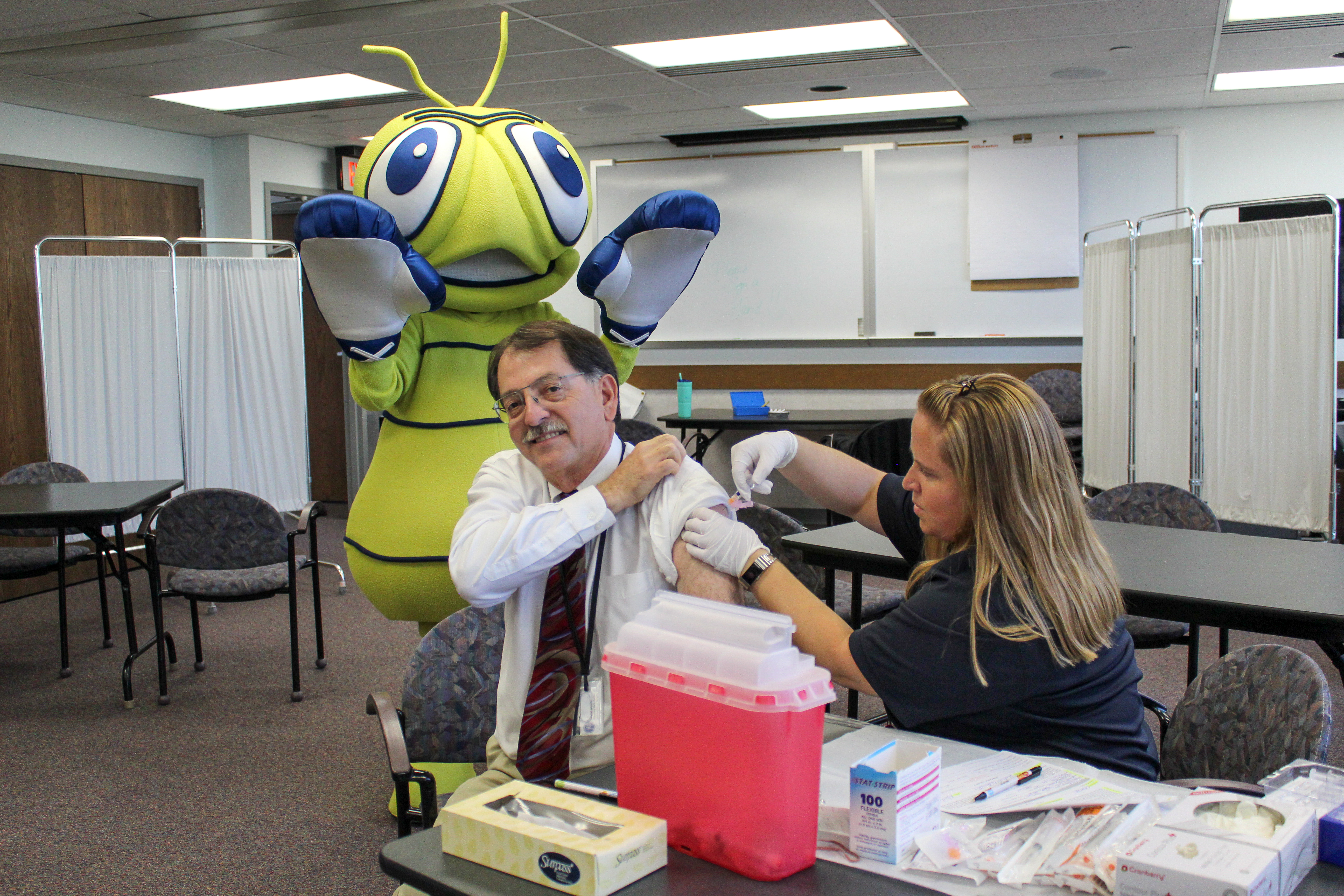Flu Season Ahead: Protect Self and Others by Getting a Flu Shot
October 3, 2019

With October marking the official beginning of the 2019-20 influenza season, Wyoming Department of Health (WDH) representatives are again recommending yearly flu vaccines as the first and most important step in flu protection for state residents.
is a contagious respiratory illness caused by influenza viruses that infect the nose, throat and sometimes lungs. Symptoms, which come on suddenly, include fever, cough, sore throat, runny or stuffy nose, headache, extreme tiredness and muscle or body aches.
Reggie McClinton, a WDH epidemiologist, said the 2018-19 flu season was severe and spread out over an unexpectedly long period of time in the state. “Unfortunately, we received reports of about 23 flu-related deaths, hundreds of hospitalizations and thousands of reported cases of flu,” McClinton said.
“The prolonged 2018-19 season should serve as a reminder that flu is a serious and unpredictable illness,” said Dr. Alexia Harrist, state health officer and state epidemiologist with WDH.
“Everyone six months of age and older should receive their seasonal flu vaccine every year. Flu viruses are constantly changing, so the vaccine is updated every season to protect against flu strains that research suggests will be common for the upcoming season,” she said. “Flu vaccines are safe and reduce occurrences of the illness, hospitalizations and deaths.”
Although healthy people can recover from the flu, they can spread the illness to those who are at high risk for serious flu complications. “Flu shots help us protect others as well as ourselves,” Harrist said.
Vaccines are especially important for those vulnerable populations which include: young children; pregnant women; people with chronic health conditions such as asthma, diabetes, or heart and lung disease; and people 65 years and older.
Additionally, healthcare workers and people who may live with, care for, or are in contact with high risk individuals or infants six months of age and under, should also get the flu vaccine.
Harrist explained that it takes about two weeks after receiving the vaccine for it to offer protection. “If someone waits to get their flu shot until after a family member, friend or coworker has caught the illness, they may not be fully protected,” she said.
Influenza vaccines are available in many locations, including local public health nursing offices, workplaces, doctors’ offices, pharmacies and retail stores and are covered by most insurance plans.
Wyoming’s public vaccine programs, which are available at participating providers, help protect adults and children from vaccine-preventable diseases, such as influenza, at little to no cost for eligible patients.
For more information about the flu vaccine, including places to receive it, or Wyoming’s public vaccine programs, contact the WDH Immunization Unit at (307) 777-7952 or wdh.immunize@wyo.gov.
